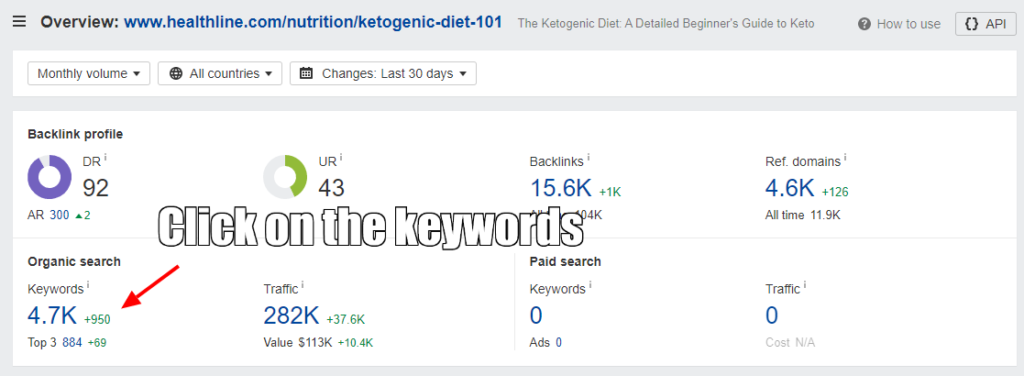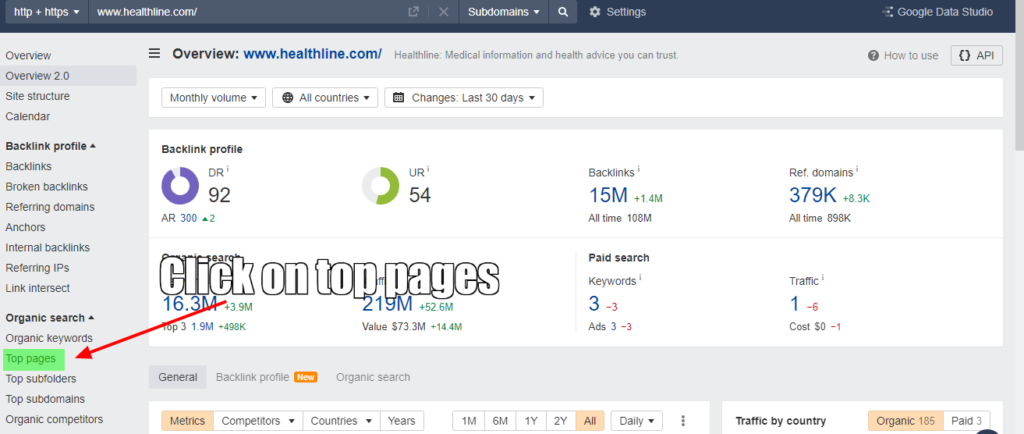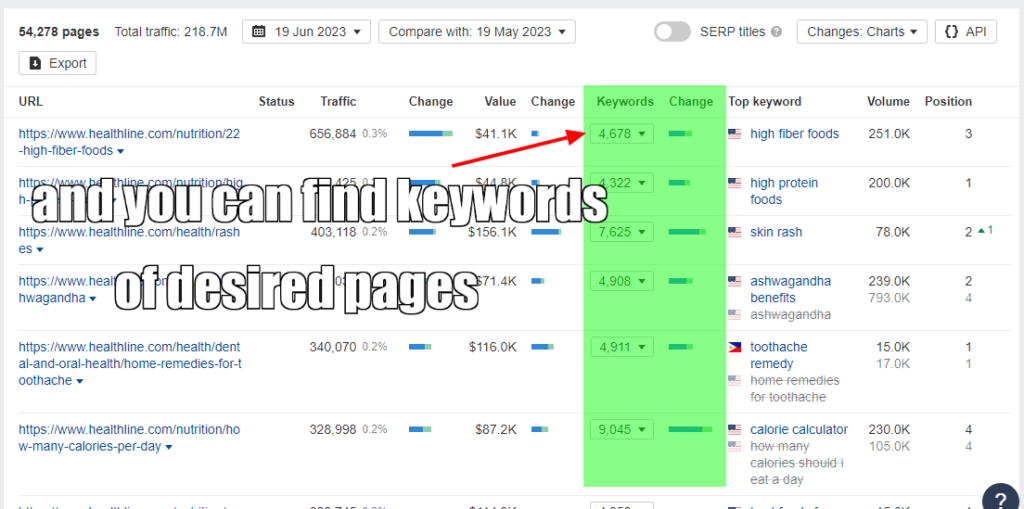Hello to all our Web Zodiac readers! Today we are going to delve deep into the exciting world of SEO, particularly, how to find your competitors’ keywords, and this time, we’re using the fitness industry as our example. We’ll be taking you through a detailed competitor keyword analysis that will arm you with invaluable insights to boost your SEO strategy.
Don’t forget to check out the screenshots we’ll be inserting at each step, to help you gain a clear understanding of the process. Let’s jump right in!
Why Finding Competitor’s Keywords Matters
You might be wondering why we need to go through the process of finding competitors’ keywords. The truth is, your keyword competition is an essential aspect of SEO. By researching competitor keywords, you not only gain insights into their SEO strategies but also find opportunities to enhance your own. It’s a brilliant way to discover market gaps you can capitalize on to rank higher than your competition.
Step 1: Identify Your Competitors (Step to find the perfect competitor)
Our journey starts with identifying who our competitors are. This includes those businesses that directly compete with you in the fitness industry, but also those who rank high for your target keywords. There are several tools that can help you check competitor rankings and find your main SEO rivals.
Go to google.com or google.co.uk, whichever fits your location. You can take the first or up to 3, completely your call. This is the easiest and best way to spot your top competition

Step 2: Choose a Competitor Keyword Research Tool
After identifying your competitors, it’s time to dive into their keywords. Here, a competitor keyword research tool comes in handy. Tools like SEMRush, Ahrefs, and Moz offer a fantastic platform for competitive keyword research. They can help you analyze your competitors’ keywords, providing key data such as search volume, keyword difficulty, and more. Below is the list of tools recommended by us
- SEMRush
Pros:- Provides a comprehensive suite of SEO tools including keyword research, site audit, and backlink analysis.Gives insights into your competitors’ organic and paid keywords.Enables you to track keyword rankings over time.
- It’s a bit pricey, especially for small businesses or individuals.
- The interface can be overwhelming for beginners due to the number of features.
- Ahrefs
Pros:- Renowned for its backlink analysis capabilities.Provides in-depth keyword research and competitive analysis features.Has a user-friendly interface with lots of learning resources.
- Pricing is on the higher end.
- Does not integrate with other tools, which can be a downside for those looking for a one-stop solution.
- Moz
Pros:- Provides a robust set of SEO tools including keyword research, rank tracking, and site crawling.Its Keyword Explorer tool offers keyword suggestions, SERP analysis, and more.Has a highly supportive online community and a wealth of learning resources.
- The interface can be a bit complex for beginners.
- The pricing might be steep for those on a budget.
- SpyFu
Pros:- Specializes in competitor keyword research.Allows you to see the keywords your competitors are using in their AdWords campaigns.Provides a user-friendly interface with clear data visualizations.
- More focused on paid search than organic.
- The number of keyword results can be less extensive compared to other tools.
- KWFinder by Mangools
Pros:- An easy-to-use tool with a clean interface.Allows for both keyword research and competitor analysis.Great for finding long-tail keywords with low SEO difficulty.
- Not as feature-rich as the other tools on this list.
- Limits on the number of searches and keywords can be restrictive.
Remember, the best tool for you depends on your specific needs and budget. All these tools offer free trials, so feel free to test them out before committing to one. Moving forward we will use ahrefs.
Related Blog – Web Zodiac’s Ultimate List of Top 10 Free Keyword Research Tools
Step 3: Check Competitor Keywords
The next step involves checking your competitor’s keywords. Enter your competitor’s website into the tool and kickstart your competitive keyword analysis. Focus on their top-ranking keywords, those they are targeting but don’t rank well for, and long-tail keywords that might be overlooked. A tool with a competitor keyword finder can simplify this process and give you an expansive view.
Web Page Level:
#1 Put in the exact

When looking for keywords for the whole website

And you can find keywords on all the pages of the website

And you will be able to find keywords with search volume and ranking difficulty

Step 4: Check how the competitor used the keywords

One in green are primary keywords and yellow are long tail keywords.
In your competitor keyword research, it’s crucial to know the different types of keywords you should be looking out for. These are not just limited to the direct match or primary keywords but also include secondary, long-tail, and LSI keywords. Let’s delve deeper into these categories:
- Primary Keywords: Primary keywords are the main focus keywords that your competitor targets. These are the most common words or phrases associated with their products or services. In the fitness industry, primary keywords could be ‘fitness trainer’, ‘gym membership’, or ‘protein supplements’. These are often the most competitive keywords with high search volume.
- Secondary Keywords: Secondary keywords are those that support the primary keywords. They are often used alongside the primary keywords to provide more context. These could include location-based keywords like ‘fitness trainer in New York’, or specific types of services like ‘yoga classes for beginners’. They might not have as high a search volume as primary keywords, but they are still crucial for a well-rounded keyword strategy.
- Long-tail Keywords: Long-tail keywords are longer, more specific keyword phrases. They typically consist of three or more words and are highly targeted. Although they usually have lower search volumes, they tend to have higher conversion rates as they attract more qualified traffic. For example, ‘best fitness trainer in New York for post-pregnancy weight loss’ is a long-tail keyword.
- LSI (Latent Semantic Indexing) Keywords: LSI keywords are those that are semantically related to your primary keyword. These keywords help search engines understand the context and content of your site. In the fitness industry, LSI keywords for ‘fitness trainer’ could be ‘nutrition advice’, ‘workout routines’, ‘strength training’, and ‘cardio exercises’. LSI keywords add depth to your content and help improve your site’s SEO.
Remember, the best tool for you depends on your specific needs and budget. All these tools offer free trials, so feel free to test them out before committing to one.
To understand how to find keywords on a website – How To Find Keywords Of A Website: An Expert’s Process
Step 5: Curate The Content as per the Competitors
Once you found all the keywords of a particular page or the whole website of your competitor. All you need to do is to find a perfect content writer and curate the content accordingly, you can use ChatGPT as well but for detailed insightful content, honestly, ChatGPT lacks the edge and knowledge and doesn’t come closer to human experience.
Note:
While curating the content always remember that relevancy is the key. You should not use the keywords just for the sake of it, only put in keywords if it fits in or else leave, Google’s algorithm is smart to fetch the intent of your written piece and will rank if you provide information. Or you can leave this whole process with SEO experts at Web Zodiac to pull the maximum out of this campaign.
Wrapping Up
Doing a competitor keyword analysis and finding your competitors’ keywords isn’t as daunting as it might seem. With the right tools and approach, you can gain invaluable insights to help improve your SEO strategy. It’s crucial, especially in highly competitive industries, to understand your keyword competition.
While it’s essential to learn from your competitors, it’s equally important to stay true to your unique brand identity. Quality and originality will always set you apart on the internet’s vast landscape.
We hope you’ve found this step-by-step guide on how to find your competitors’ keywords in the fitness industry helpful. Should you have any questions or need more help, don’t hesitate to reach out to us at Web Zodiac. Our mission is to help you navigate the intricate world of SEO and get your website ranking higher than ever.
Until next time, keep researching, optimizing, and growing with Web Zodiac. Happy keyword hunting!


0 Comments